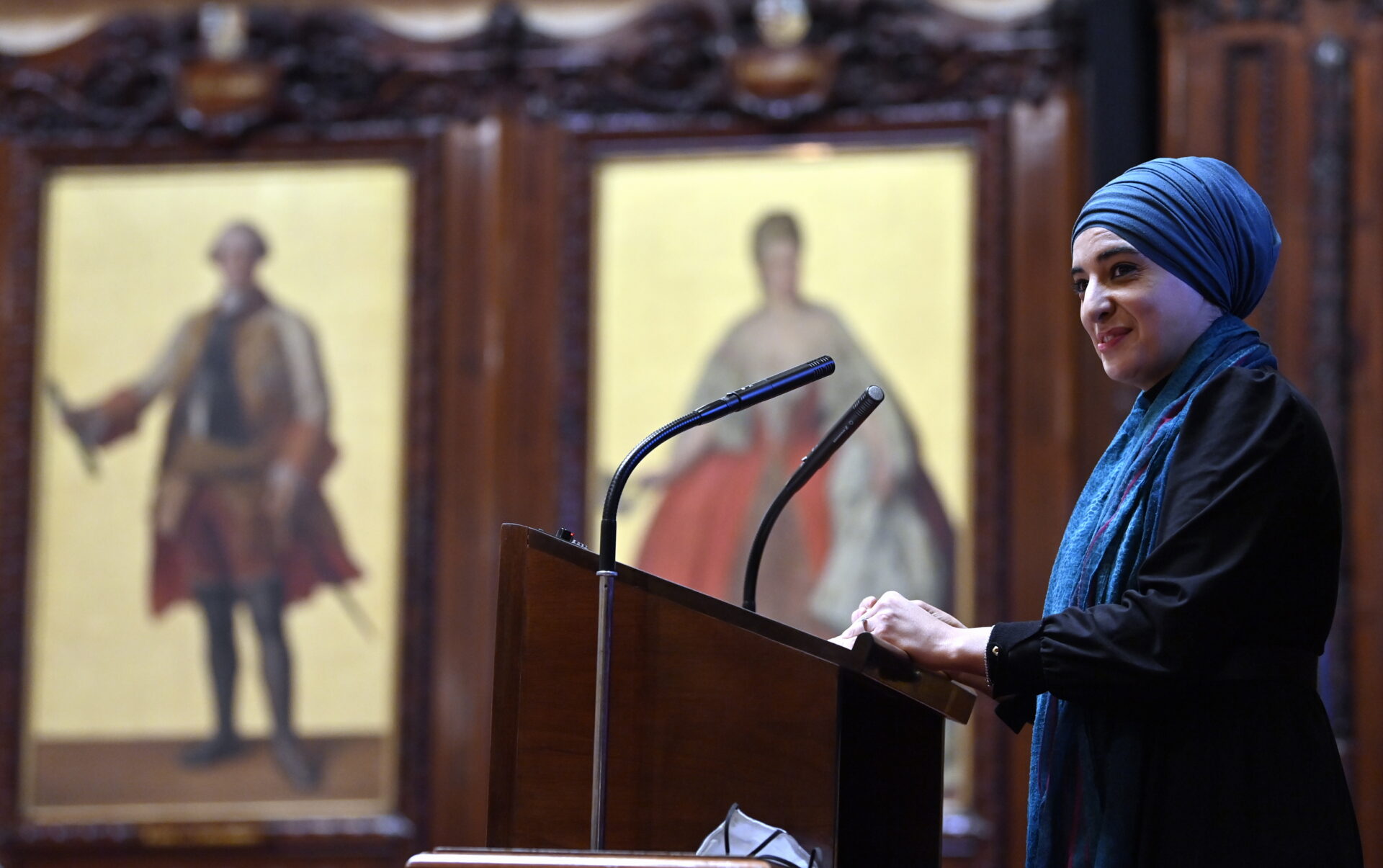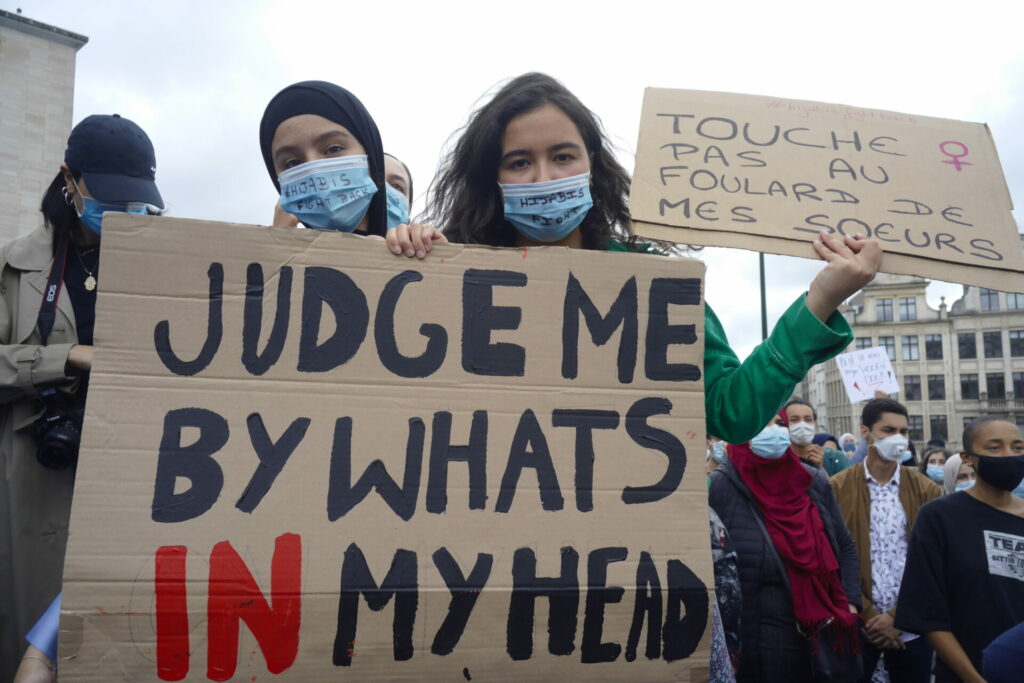With a total ban on religious symbols in Brussels' public services set to be rejected by the Brussels Parliament on Wednesday, the differing opinions of the Regional Government's parties on religious neutrality have been laid bare for all to see.
A parliamentary committee rejected a proposed comprehensive ban on the wearing of religious symbols within the capital's administrations on Monday.
In addition, a vote in the Brussels Parliament on Wednesday will likely be rejected, which could end a long line of governmental differences on religious neutrality.
In 2021, a Brussels labour court ruled that the capital's public transport operator, STIB, had discriminated against a veiled woman in a hiring process two years earlier. The government chose not to appeal the ruling, a decision to which the centrist party DéFI objected due to their long-standing stringent stance on secularism.
As a result, the parties that compose the Brussels Government (DéFI, the Flemish liberals Open VLD, both green parties Ecolo and Groen, as well both centre-left parties PS and Vooruit) reached an agreement on their position on religious neutrality in public services.
"Exclusive neutrality shall remain the rule for functions of power or those in direct contact with the public, but with permissible derogations for the others," their policy now reads.
Related News
- Why Belgium has six governments (and not seven)
- 'Don't let the loudest win': Pro-Good Move petition gets over 5,000 signatures
- Clearer, kinder and fit for today: Belgium to overhaul Penal Code
In practice however, this created a 'grey zone' in which those who practise their faith might still be able to wear religious signs provided it was approved by the institutions where they worked, as is the case with the employment agency Actiris.
Thinly veiled criticism
As a result of this perceived lack of clarity on the subject, the French-speaking centre-right party MR tabled a motion requiring total neutrality in all regional institutions, with no exceptions, which drew quick criticism from political opponents.
For the region's left-wing parties, this proposal was aimed at Muslim women wearing headscarves, especially given the current discourse around the veil as a result of protests in Iran. Farida Tahar (Ecolo), for example, told La Libre that MR's misgivings about the veil were incorrect since "what I wear on my head is not the decision of a brother or a spouse or anybody else," but hers alone.

MP for the Brussels-Capital Region Farida Tahar (Ecolo). Credit: Eric Lalmand.
DéFI, on the other hand, appeared to dither once more on how to best handle the sensitive subjective, with eight of their ten regional MPs supporting the proposal, while two will reject it.
Emmanuel De Bock, one of their MPs, explained his party's lack of unity on the issue as wanting to support the plan on an ideological basis but disagreeing with how it was framed.
He concluded his explanation by advocating for a federal rule on such issues in order to avoid additional divide among parliamentarians such as that generated by the proposed ban on ritual slaughter.

